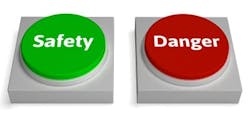Reader Feedback: Why Is Alarm Management Such a Problem?
[This comment is a response to the Controlling Interests blog post, "Alarming Déjà-Vu,"].
Alarm management is a problem of effort. It's time-consuming. What's the cost of best practice alarm management? What's the return on investment? Hard to quantify.
Operators don't buy into best practices. They want to know about any problem through an alarm message, not just conditions that would lead to personnel injuries or major equipment damage. Thus, when a time-consuming alarm analysis is done, it's difficult to reduce the alarms. An alarm panel 40 years ago might have a low pressure alarm. Now we get [alarms about] pump stopped, low flow, low pressure and maybe even bad transmitter. Events are treated as alarms.
Regulation and liability make it difficult to remove alarms. Not alarming will be considered mismanagement, but almost never will too many alarms. Well maybe the corporate staff raises the issue of excessive alarms, but usually not the operational staff. Management of change magnifies the effort to "clean up" the alarms. The approvers often don't understand the significance or lack there of, of a recommendation to reduce the status of an alarm to maybe that of an event.
Once 200 was considered the maximum number of loops an operator could handle. Now 2,000 is not unusual. Operators handle a wider range of events and often manage by responding to alarms rather than by monitoring the process.
Users need to request change by providing useful suggestions to vendors, and vendors need to look inside their system for conditions that aggravate alarm overload. Still better alarm displays are also needed. Vendor/user interaction could help this development.
Harry Elliott
[email protected]
About the Author
Harry Elliott
Harry Elliott

Leaders relevant to this article:
